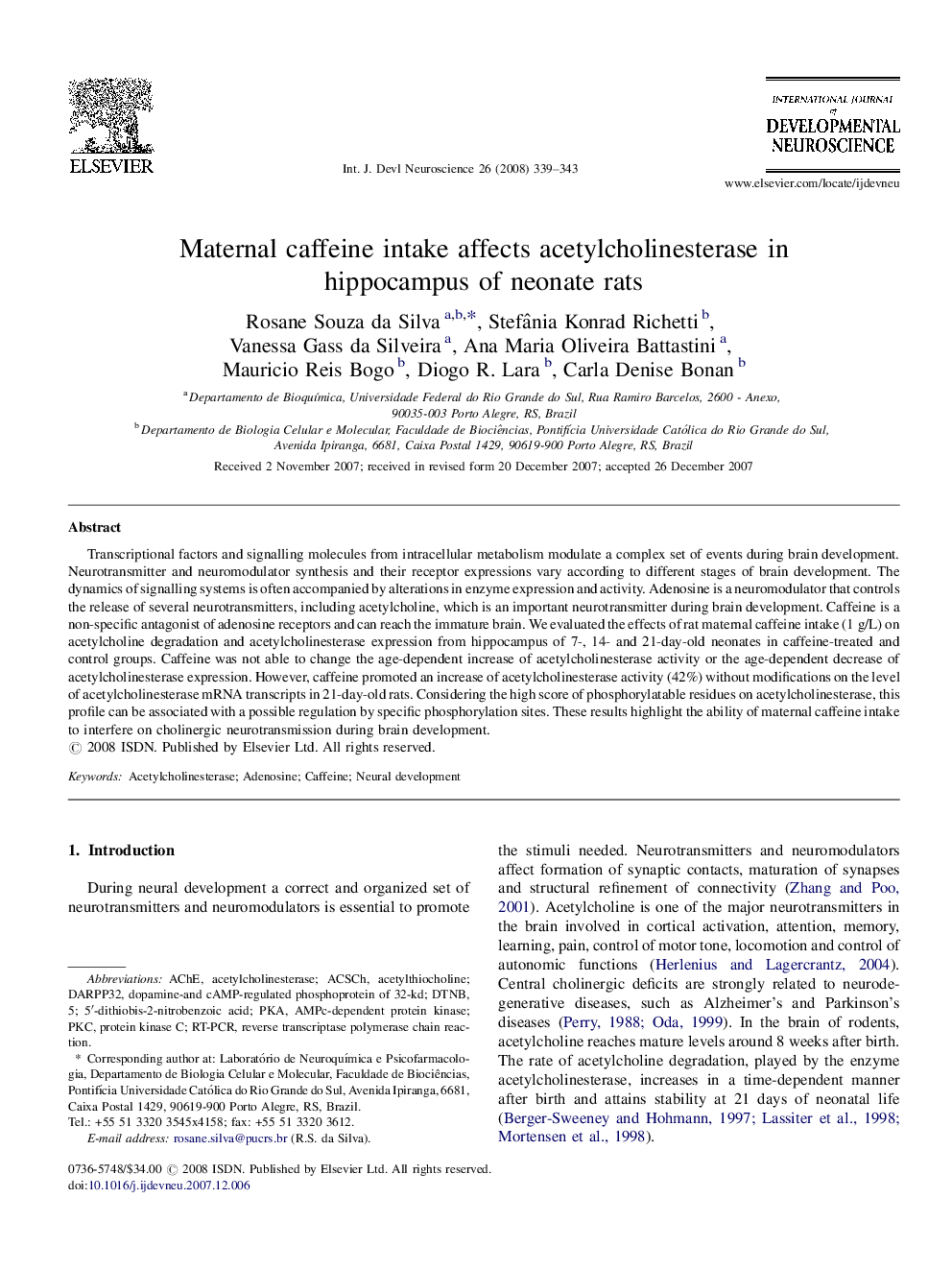| Article ID | Journal | Published Year | Pages | File Type |
|---|---|---|---|---|
| 2787049 | International Journal of Developmental Neuroscience | 2008 | 5 Pages |
Transcriptional factors and signalling molecules from intracellular metabolism modulate a complex set of events during brain development. Neurotransmitter and neuromodulator synthesis and their receptor expressions vary according to different stages of brain development. The dynamics of signalling systems is often accompanied by alterations in enzyme expression and activity. Adenosine is a neuromodulator that controls the release of several neurotransmitters, including acetylcholine, which is an important neurotransmitter during brain development. Caffeine is a non-specific antagonist of adenosine receptors and can reach the immature brain. We evaluated the effects of rat maternal caffeine intake (1 g/L) on acetylcholine degradation and acetylcholinesterase expression from hippocampus of 7-, 14- and 21-day-old neonates in caffeine-treated and control groups. Caffeine was not able to change the age-dependent increase of acetylcholinesterase activity or the age-dependent decrease of acetylcholinesterase expression. However, caffeine promoted an increase of acetylcholinesterase activity (42%) without modifications on the level of acetylcholinesterase mRNA transcripts in 21-day-old rats. Considering the high score of phosphorylatable residues on acetylcholinesterase, this profile can be associated with a possible regulation by specific phosphorylation sites. These results highlight the ability of maternal caffeine intake to interfere on cholinergic neurotransmission during brain development.
